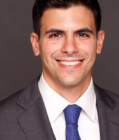How Affluent College Campuses Encourage Support for Conservative Economic Policies
Connect with the author
Most people just assume that colleges are hotbeds of liberalism from which most students graduate with more left-leaning beliefs and inclinations than the beliefs they had when they first arrived on campus. But how does this assumption square with the fact that affluent Americans support more conservative economic policies than the non-affluent? That matters, because scholars have demonstrated that richer Americans have an outsized impact on public policy – politicians listen to them and cater to their values and preferences. Of course, affluent young people are more likely to have gone to college than those from less privileged backgrounds, so an obvious question is: do they shift their views about policies in a conservative direction while in college?
In a new study, we have probed whether support for conservative economic policies may be partially learned in college. When we overlook the fact that many colleges are affluent enclaves, it is easy to assume that college attendance is simply a liberalizing experience. We find that college can also increase conservatism – and our research helps to explain exactly where and how that happens.
Why Campuses Might Promote Conservatism
In the current era of high income inequality, young people from more well-to-do families are more likely to be admitted to college and actually graduate than those from families with modest or low incomes. As a result, many campuses are heavily populated by the most affluent students – and many of these colleges, we argue, have an affluent culture, that is, social routines and norms that take affluence for granted and convey that it is a good thing. On top of the general atmosphere, some cohorts of college students have a preponderance of people who see education as a road to financial gain. An affluent campus atmosphere combined with a cohort norm touting the value of financial gain can teach students, especially those from affluent families, to favor policies that benefit the wealthy. Affluent students are especially affected because they are the ones likely to identify as and emulate norms of the affluent. In other words, students from affluent backgrounds are likely to emerge from college with more conservative policy preferences when they are immersed in campus social environments that embody privileged class norms.
An Innovative Study
Previous research on college characteristics has not looked, as we do, at the impact of social norms on affluent people, or at concentrated affluence. Our study probes for relevant effects in a methodologically innovative way. We use data from a survey of 29,113 affluent college students attending 359 schools. They answered the same questions at the beginning and end of college.
Here are some of our key findings:
- Affluent students attending affluent campuses emerge from college with views that are significantly more conservative than affluent students who attend non-affluent campuses, accounting for their views in the first year.
- The conservatizing effect of campus affluence is especially strong on campuses where most students indicate they are attending college for financial gain. It is also enhanced for students who are involved in campus activities and thus likely to absorb the social norms.
- Peers matter too. Overall opinions on economic issues held by most others in students’ cohort also have an impact on their individual preferences.
Our results hold when we use alternative strategies to test for the causal effects. The techniques we used included controls for other factors that might influence students, such as faculty views and curriculum. We also compared students who matched in most ways. We also analyzed a campus whose affluence changed suddenly. Finally, we examined students who applied but were rejected from affluent – or less-affluent colleges -- and thus could not choose a school based on its affluence. This approach eliminates what scholars call “selection bias,” ensuring that we are not just picking up the change students would undergo because of who they are rather than the college they are in.
The Larger Meaning of our Findings
Rising income inequality in the United States does not just affect American pocketbooks. Its effects reverberate through many institutions and social settings – including the nation’s college and university campuses. Access to college is becoming more unequal, as families of modest means struggle to pay for higher education and many young people cannot afford to attend four-year colleges. Even many public universities have mostly affluent students, and their norms reinforce affluent world views. Affluent campuses send messages to students, especially to those from affluent backgrounds, reinforcing the desirability and legitimacy of affluent life styles and, often, shaping their views on economic issues and public policy choices. Far from always emerging from college more liberal than when they entered, many college students – especially those studying on affluent campuses – can be increasingly drawn to support for conservative policies that reflect and reinforce growing economic gaps in America.
More generally, our study contributes to growing research literatures that underline the important role of institutions in shaping the social and political views of people who participate in them or – in the case of schools and colleges and universities – pass through them. Young people making the transition to adulthood may be especially likely to internalize norms, ideas, and expectations from institutions. Affluent people in America are much more supportive than other Americans of policies that reduce taxes on the rich or balance business profits against public needs for a living wage, workplace safety, or . Their economically conservative views have a disproportionate impact in public life. Such economic views, it turns out, are partly shaped by experiences at colleges and universities, which themselves increasingly have privileged student bodies and cultures that place a high value on affluence.
Read more in Tali Mendelberg, Katherine McCabe, and Adam Thal “College Socialization and the Economic Views of Affluent Americans,” Princeton University, forthcoming.


